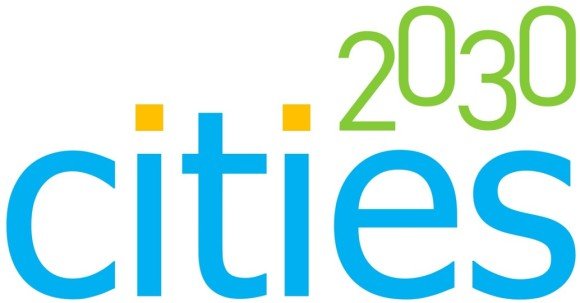Living: CRFS framework
The innovation framework extracted from the desk research for the formation of the Venice Living Lab is described below.
1- Latteria Sant'Andrea
Processing, distribution, markets
It is a cooperative agricultural company, based in Treviso (Italy), specialised in the production of typical Veneto cheeses, which buys its raw materials exclusively from selected dairies operating solely in the Province of Treviso. The products are sold exclusively in the three single-brand outlets of the dairy (inside the Povegliano plant, and in the shops in Lancenigo and Treviso) and in the open-air markets of the province.
Synergy with 11 small stables in the province of Treviso from which they buy their milk and can count on a constant and quantifiable demand for milk, as well as breaking away from the networks of large-scale organised distribution, which are too competitive for small producers. Self-managed distribution of quantities produced on the basis of demand from direct sales.
The struggle of small producers and food processors to compete in the large market and big selling channels is increasing. A collaboration between "small" actors working in the same territory, one close to the other, can potentially reduce the dimension of some supply chains, supporting small enterprises, guaranteeing their survival and promoting local products.
Location: Treviso, Veneto Region, Italy
Source: Latteria Sant'Andrea, https://www.lattsantandrea.com/
2- Last Minute Market
Distribution, markets, waste
Last Minute Market is a spin-off company accredited by the University of Bologna, now being turned into a social enterprise, which supports large-scale retail trade companies in the recovery of surplus food. Its services include saving food surplus to be reused for social purposes; increasing awareness on food waste through educational programmes targeted to schools, third sector, companies and citizens, carrying out studies and research to analyse the causes of losses and waste along the different production chains, fostering communication campaigns to sensitize citizens.
Italian food waste, in the distribution sector alone, amounts to 1.9 billion euros. This innovation allows to increase awareness on food waste, drastically reducing GHG emission, water usage, waste of biological land, just as the social costs linked to food waste disposal and provide support to food distributors and caterers. With the enterprise recently focusing also on medicines, which often remain unsold and unused, and non-food goods, it fosters a circular living and mind-set 360 degrees and collaborates with different stakeholders in the supply chain.
Waste is turned into a way to connect individuals to the environment (through better awareness) and their neighbourhood. This is a form of innovation that perfectly shows how it is possible to combine natural, human, social and economic needs in forms of sustainable local development. Since 2022, Last Minute Market has been a member of the European Platform on Food Loss and Waste.
Location: Bologna, Italy
Source: Last Minute Market, https://www.lastminutemarket.it/home
3- Recup
Social inclusion & equality, markets, consumption
Recup is a project that works in city markets to combat food waste and social exclusion. They recover food before it is thrown away, divide it between edible and non-edible, and finally redistribute it to anyone who wants to take it. The beneficiaries are the same as the doers of the work: this creates a concept of collaboration and community between different people, a possibility for intercultural and intergenerational exchange. Recup is an association that creates a linkage between two problematic aspects of the food system. On the one side, fresh food waste produced by wholesale and local markets; on the other side, malnutrition and difficult access to daily food. The collection of still edible food from markets mitigate the impact of waste and, as collection and deliveries are organised by cargo-bike. It also obtains two extra advantages: to avoid an extra number of vehicles in the urban centres, to avoid the extra impact on air quality.
Urban markets are vibrant and characteristic places where local identity can express and show itself to visitors. However, there are also places where waste (both from fresh food and packaging) is a daily problem. The paradox of the amount of edible food not sold and the presence of fragile people that cannot provide daily food in the same urban context can be mitigated by social initiatives that promote solidarity.
Location: Milan, Italy
Source: Recup, https://associazionerecup.org/
4- Orto della Salute
Social inclusion & equality, production, distribution
It was set up as a therapeutic phase for the rehabilitation of drug addicts attending the "Lilliput" rehabilitation centre, and sees the involvement of free citizens-associations-schools-research centres and universities to: the recovery of the permeable soils of the abandoned park; cultivation of the terraces; self-building practices for irrigation systems, compost bins, furniture and covers; soil survey; experimentation with rainwater recycling systems for irrigation; organic farming recreational and cultural events.
Recovery, care and maintenance of the part of the park abandoned due to lack of funds for day-to-day management, reopening of the part of the park; minimum agricultural production to meet the vegetable needs of the families adopting the terraces; extracurricular training workshop for children; rehabilitation therapy for addiction pathologies; cultivation and recovery of native and ancient (endangered) crops
Urban food production can be an opportunity to face specific urban problems, such as abandoned/underused green public spaces, lack of economic resources for the maintenance, presence of fragile members of the society.
Location: Ponticelli, Naples, Italy
Source: Orto Sociale Urbano della Salute e del Benessere,https://www.facebook.com/ortosocialeurbanosaluteebenessere/
5 - Un coquelicot entre les dents
Distribution, Consumption, Social inclusion & equality
Transformation of a car park at the municipal stadium into a community garden, meeting and sharing place at weekends, crossroads with cycle routes. Production of vegetables as a supplement for the less well-off families in the municipality (added to the baskets of the provincial food bank).
The project allows to obtain several benefits: fresh food offered to families in need, as a supplement of food bank baskets (that rarely contain fresh vegetables or fruits); reactivation of underused public and/or private spaces in the periphery; opportunities of encountering between citizens from different part of the city and the society.
Location: Dompierre sur Yon, Vandée region, France
Source: Association pour la transition écologique, sociale et solidaire à Dompierre sur Yon, https://www.facebook.com/uncoquelicotentrelesdents

.jpg.f3463f7775c915874acb2cb39874bb89.jpg.af3b9ea5d37b63878742edbeef4992d3.jpg)
